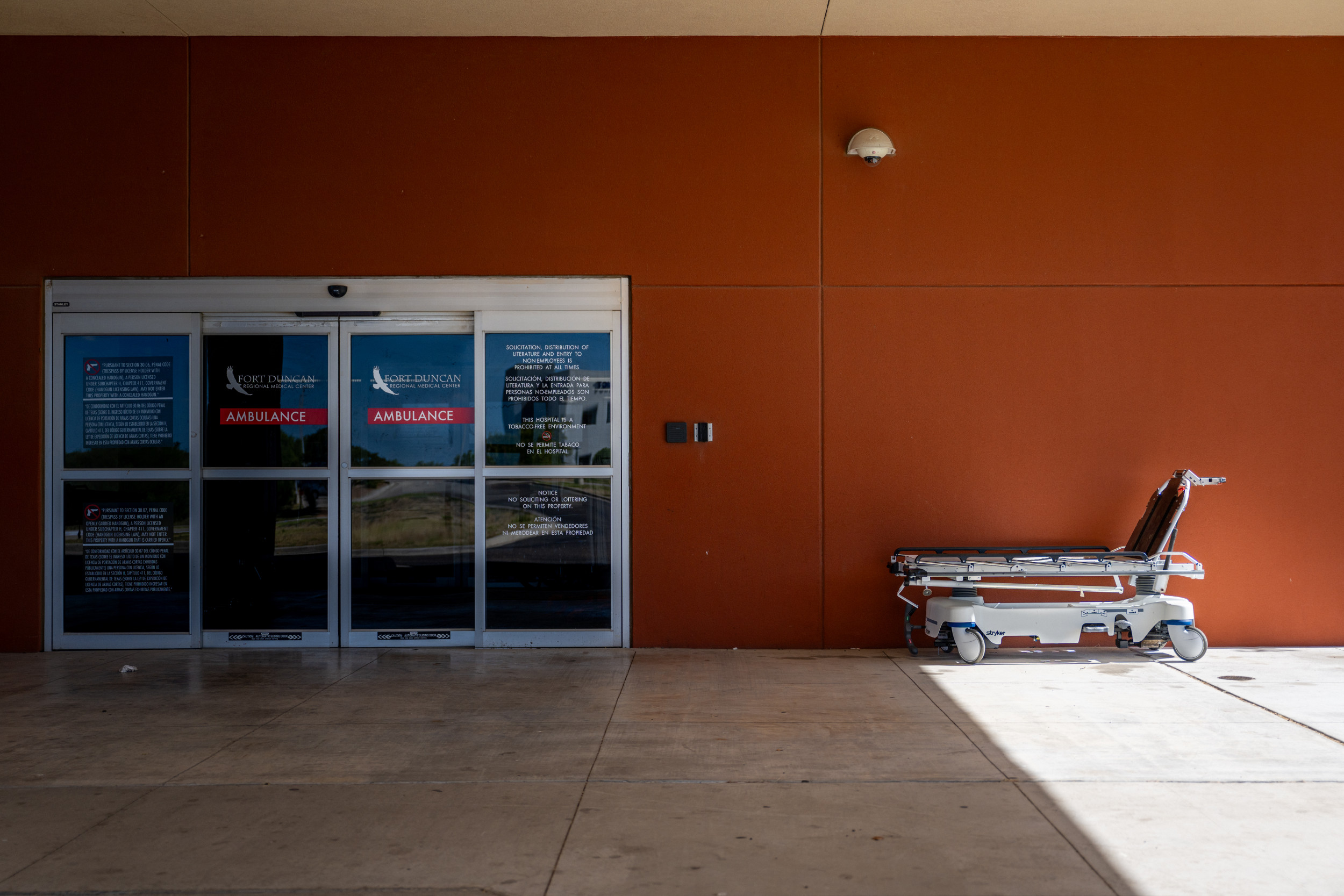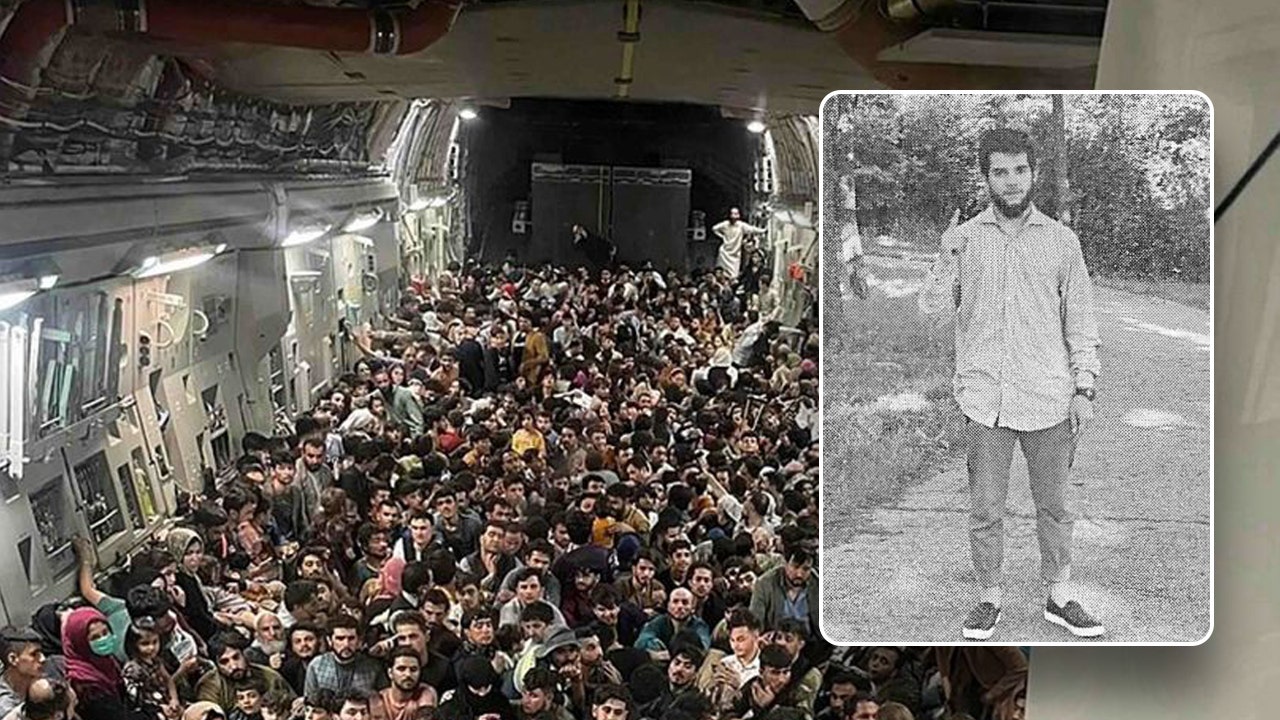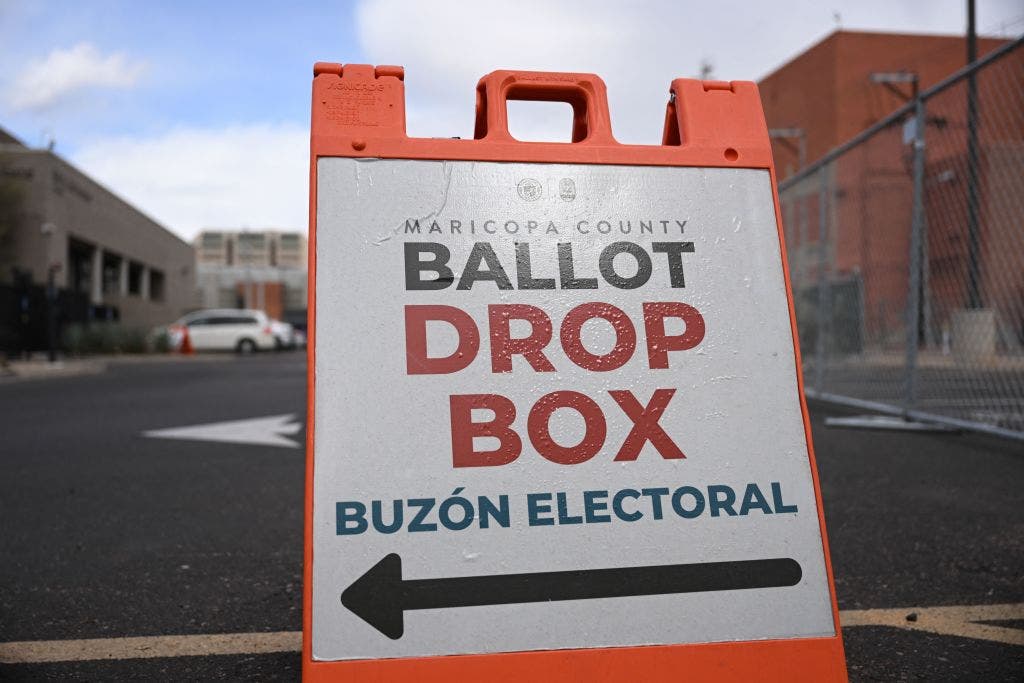Sports
Gascón wanted to hold Ryan Garcia accountable for $15,000 hotel vandalism damage. Judge dismissed case

Mercurial boxer Ryan Garcia caught a break Tuesday when a judge dismissed a misdemeanor vandalism charge against him over the objections of the Los Angeles County district attorney’s office.
Judge James P. Cooper III granted a civil compromise at the Airport Courthouse in Los Angeles, noting that Garcia had paid restitution of approximately $15,000 to the Beverly Hills Waldorf Astoria hotel for damage stemming from an incident June 8 in which he allegedly damaged property in his room and the hallway.
Garcia had no criminal record and was hospitalized after his arrest, but L.A. County Dist. Atty. George Gascón said in a news release after the arrest that the popular lightweight boxer would be held accountable.
“While we are grateful no injuries were reported in this incident, reckless behavior that damages property shows a blatant and unacceptable disregard for the safety and peace of our community,” Gascón said.
Garcia, 26, responded with a post on social media: “No way I’m going to jail.”
Turns out he was correct because, as the judge noted in open court, Garcia’s payment of full restitution prompted the Waldorf Astoria to decline to pursue the matter further.
Cooper cautioned Garcia from the bench before dismissing the case, saying, “I have seen athletes lose their money, very quickly, because people always want to be around you to party when you have the money. But when that money’s gone, your friends are no longer around and they no longer have their hands out because your money’s gone. And you can look at Mike Tyson. It happened to Muhammad Ali. It happens to a lot of people in your field.”
The incident marked the low point in a series of events that began with a stunning achievement, an upset over Devin Haney in April in which Garcia knocked down the World Boxing Council super lightweight titleholder three times en route to a majority decision. Haney retained his title because Garcia was 3.2 pounds overweight at the time of the fight.
Eleven days later, the Voluntary Anti-Doping Assn. determined that Garcia had tested positive for Ostarine, a performance-enhancing drug that can stimulate muscle growth, the day before and the day of the fight. Garcia responded with mixed signals, first saying through his lawyers that he was the victim of contaminated supplements, then unleashing a rant on social media that seemed close to a confession.
“Let’s go we positive. Positive vibes bruh. Yess so happy,” Garcia wrote in posts that have since been deleted. “I F***ING LOVE STEROIDS. I don’t care I’ll never make money again with boxing. Your loss not mine for setting me up lol joke’s on y’all. I will swallow all steroids.”
The New York State Athletic Commission suspended Garcia for one year, fined him $1.2 million and ordered him to forfeit his $1-million purse. Garcia, who grew up in Victorville, is eligible to fight again in New York in April if he passes a drug test.
Garcia said several times on social media before news of the suspension that he was retiring from boxing and later posted that he wanted to talk to UFC president Dana White about joining that organization.
“I really hope boxing good without me,” Garcia posted. “I fought everyone and was willing to. They have turned there back on me. I’m innocent. I stand by that I don’t care what everyone says. Gun yo my head I say I didn’t take PED’s.”
Now, however, Garcia (24-1, 20 KOs) says he’s training for a potential rematch with Haney (31-0, 15KOs).
“We training every day. We got to be ready so when Devin Haney wants that fade again. We already beat his a— one time. If we do it twice, no debating anymore,” Garcia told Cool Kicks.
Haney’s father, Bill, responded by saying Garcia would need to pass a drug test before a rematch could be discussed. The two camps can jaw about it for a while because Garcia’s suspension doesn’t end until April 20.
Garcia’s erratic behavior has continued since the hotel incident. The World Boxing Council expelled him in July after he used racial slurs against Black people and disparaged Muslim and Jewish people on social media. He also attacked the inclusion of LGBTQ+ music and pop culture performers during the opening ceremony of the Paris Olympics with a string of profane social media posts.
In court, however, the judge focused on Garcia fulfilling his restitution to the hotel in dismissing the vandalism charge.
“The court issues a lot of restitution orders and I will say that in 95% of them, the victim never receives satisfaction,” Cooper said from the bench. “And I think in this situation, where the defendant has made full restitution, in a weird sort of way he’s sort of shown a lot of remorse for what happened and I think he gets the benefit of his bargain.”

Sports
Why Man City’s legal case means they have incredibly strange relegation odds

Manchester City have won the Premier League four times in a row and are unbeaten after seven matches this season.
But they are more likely to be relegated than Brighton & Hove Albion, Fulham and West Ham United, according to bookmakers.
City are 12/1 to be relegated this season, with Arsenal and Liverpool, their two most prominent domestic rivals, priced at 2,000/1 to drop into the Championship.
This has nothing to do with their consecutive draws against Arsenal and Newcastle United, nor is it down to Rodri being out for the season with an anterior cruciate ligament injury he sustained against Arsenal in September.
There is no correlation between what they are producing on the pitch and the possibility of them playing in the English Football League next year.
Betting companies have shifted their odds due to City’s legal dispute with the Premier League — concerning the 100-plus charges levelled against the club — and the prospect of a significant points deduction if they are found guilty.
There is an ongoing case between City and the Premier League (Michael Regan/Getty Images)
“From an industry point of view, the usual way of forming your relegation odds is to take the title odds and flip them the other way,” explains Alan Alger, a gambling consultant. “This is the first time it hasn’t happened.
“It is unprecedented that you would have a very short price for the title and then also what is a relatively short price for relegation. That can only be because the threat of relegation exists because of a relegation sanction or because of a big enough points deduction that puts them in the mix to be relegated.”
What is the latest regarding Manchester City’s 115 charges?
The hearing that will decide whether City broke any of the Premier League’s financial rules started on September 16 and is taking place in London.
It took more than 18 months to get to this stage, with the Premier League announcing the charges in February 2023. The hearing is expected to last around two and a half months.
The club is accused of multiple alleged breaches of a financial nature, including accusations they injected revenue by inflating sponsorship deals, while also hiding some costs by not declaring certain salaries and image-rights payments.
The charges range from failing to provide accurate financial information, breaching the Premier League’s profit and sustainability rules, failing to cooperate with the Premier League’s investigations, not providing accurate details for player and manager payments and not complying with UEFA’s FFP regulations.
When a verdict is delivered, City and the Premier League can mount an appeal if they are unhappy with the decision. City have maintained their innocence and strenuously deny all the charges.

How has this impacted their relegation odds?
Ordinarily, Manchester City, like Liverpool and Arsenal, would be priced at 2,000/1 to be relegated. This is a general price that makes clear bookmakers think there is no chance of it happening.
But in May, the market shifted and serious thought needed to be given to the likelihood of City receiving a points deduction that could lead to relegation.
“We were the first out in the industry in putting a price on Manchester City,” explains Bet365’s Steve Freeth. “We discussed whether we should offer a price because, quite clearly, the liabilities running out on 2,000/1 would be astronomical.
“It was a case of some heads getting together, putting our fingers in the air and saying, ‘What’s going to happen to Manchester City and how do we see it?’, because it is so extreme.
“The price we fell on was 33/1 because you can’t know whether they will get nothing at all or be deducted 100 points. We went out in the market on May 19 with 33/1 and it has been a steady flow of business ever since.”
Manchester City vs the Premier League
Are people placing bets on City being relegated?
Yes, which is why their odds have shortened from 33/1 to 12/1.
“The kind of people backing it are your regular punters in the street, placing bets of £1, £5 and £10,” says Freeth. “They are the sorts of bets we are laying.
“We are laying quite a considerable amount of those bets, hence why the price has dropped from 33/1 to 12/1 over those months.”
Freeth noted that Bet365 has “built liabilities into seven figures”, meaning if City are relegated this season, their payout to customers totals more than £1million.
“We have to protect ourselves because it is such a volatile situation and that’s why we haven’t been offering 2,000/1,” Freeth adds. “Manchester City could win the next 10 games on the bounce but the 12/1 price wouldn’t move a great deal. It is not about results on the pitch, it is about results in the courtroom.”

City have been in good form in the Premier League but this will not impact odds (Shaun Botterill/Getty Images)
“It is purely a case of bookmakers protecting against the chance of a large points deduction that puts them in the relegation market,” Alger says. “And in such a high-percentage market in terms of profit for bookmakers, because you have 20 teams and three winners, you can overload the percentage and there is no upside in going 500/1 for Manchester City.
“But the fact you can go 12/1 and only take a small amount of margin out of your overall market, there is no upside to going any bigger than those prices because you won’t get any prizes for doing so. As the season plays out, you will continue to see them at a false price for relegation in terms of the chance of it happening.”
Have legal cases influenced sports betting markets before?
Everton and Nottingham Forest received points deductions last season, which has helped inform bookmakers on how to price in legal cases and potential punishments for relegation odds.
However, the cases involving Everton and Nottingham Forest pale compared to what has been levelled at City by the Premier League.
“Sometimes you can get a steer but there is such little information out there about the City case,” Freeth explains. “There was a steer last season that Everton would get a deduction of some sort, so that wasn’t as difficult to model. We didn’t think Everton would get more than 10 points, likewise Nottingham Forest.
“But just like everyone else, we haven’t got a clue (regarding Manchester City). That made us better prepared last season, but we have to stay vigilant and manage accordingly.”
Has a potential points deduction impacted City’s odds of winning a fifth consecutive title?
Pep Guardiola’s side are no longer favourites to win the Premier League, with Arsenal being viewed by bookmakers as the most likely club to end the season on top.
“The difference between being 4/7 favourites and then being 8/11 favourites at the start of the season, it looks minimal, but the percentage difference is about the same as the difference between 12/1 and 500/1 for relegation,” Alger says.
And, according to Freeth, people are still backing City to win the league, with the market most recently being impacted by Rodri’s season-ending injury, as well as Kevin De Bruyne missing the last three matches through injury.
(Top photo: Matt McNulty/Getty Images)
Sports
College hockey equipment manager forced to play goalie in huge NCAA Division I game
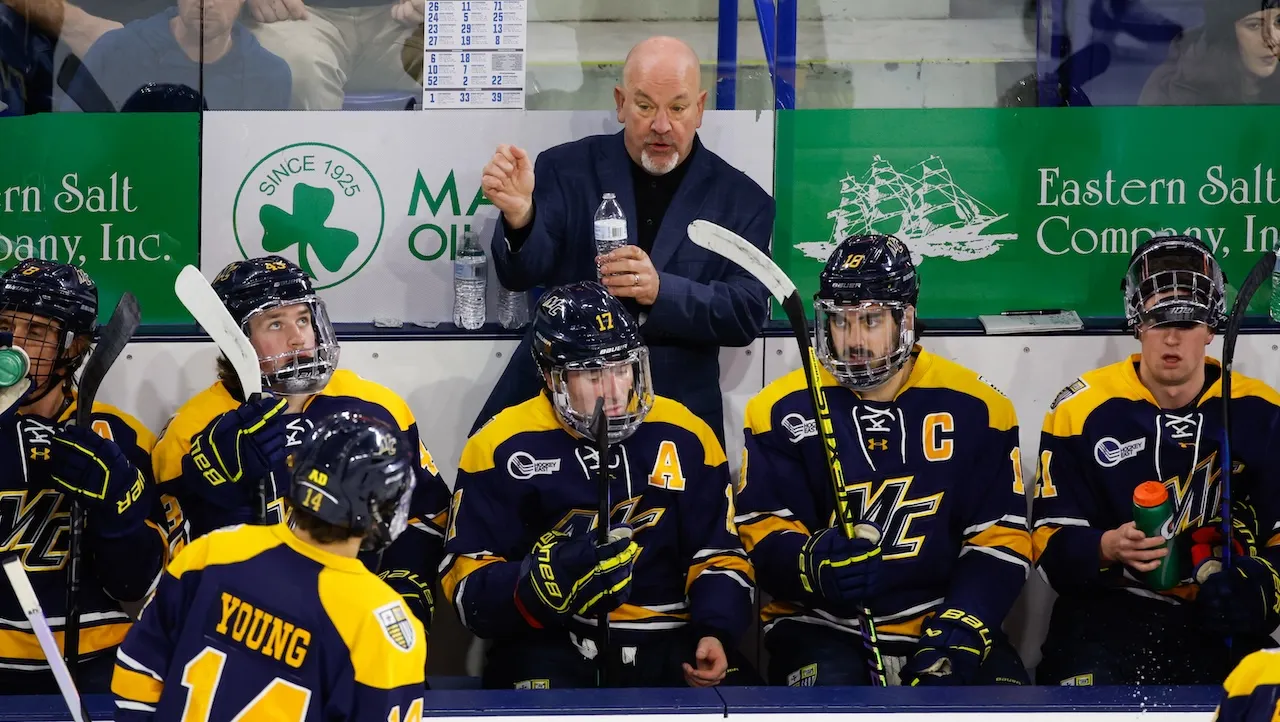
Merrimack College’s ice hockey team went pretty deep into its bench for a starting goalie this week.
The Division I hockey program started student manager Spencer Marquis against Stonehill on Sunday. Marquis was only just set to begin his job as a manager, as Sunday was supposed to be his first official game as part of the equipment staff.
But after starting goalkeeper Max Lundgren was suspended by the NCAA for playing one minor pro game in Sweden before he enrolled, the team ended up with a gaping hole at the position. Backup goalkeeper Nils Wallstrom is dealing with injury, while third-stringer Ryan Keyes, who was expected to get the start, suddenly found himself dealing with an NCAA eligibility issue.
So, out of desperation, Marquis’ services were needed in-net for Merrimack, not in the laundry room.
The senior stepped in and had a whopping 22 saves for Merrimack in his first ever NCAA game en route to a close 3-2 loss.
The Merrimack Warriors raise their sticks before a game against the Boston University Terriers at Lawler Rink on Dec. 1, 2023, in North Andover, Massachusetts. (Richard T Gagnon/Getty Images)
“Not the result we wanted, but it’s a dream come true for me,” he said. “It’s been the craziest 48 hours of my life,” Marquis said after the game, via the Mack Report. “Every kid grows up dreaming of playing college hockey. I got my chance a little different than some other people, but it was a once in a lifetime opportunity.”
Marquis had last played hockey for Brunswick High School in 2020, and didn’t even get the chance to practice with Merrimack for his start.
FOX NEWS DIGITAL NFL POWER RANKINGS AFTER WEEK 5
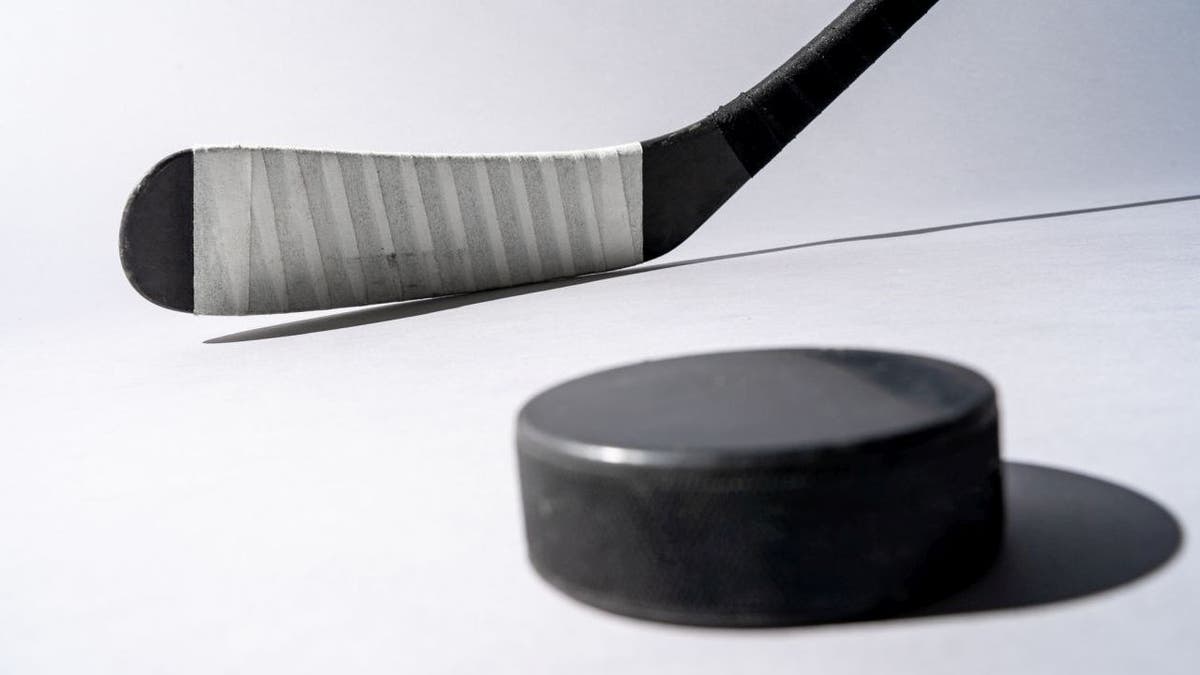
Merrimack was forced to get creative during their game. (iStock)
“I’m happy to be a part of it,” he said. “They knew I played goalie in high school and they said to me that I might need to dress as a backup. Then it was that I might have to start. It all happened really quickly.”
Despite the loss, he made a series of clutch saves that gave his team a chance to win throughout regulation. However, he gave up the game-tying goal with just 8.9 seconds left in the game, then the game-ender in overtime to Stonehill’s Devlin O’Brien.
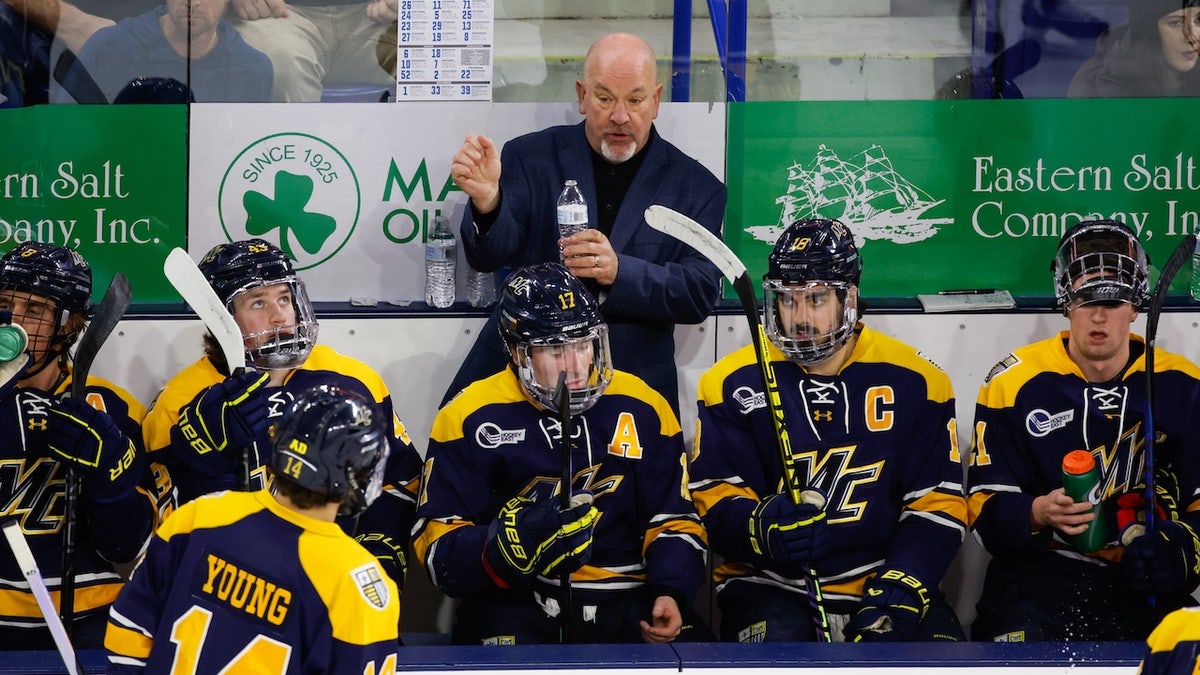
Head coach Scott Borek of the Merrimack Warriors stands behind the bench during a game against the UMass Lowell River Hawks at the Tsongas Center on Nov. 18, 2023, in Lowell, Massachusetts. (Richard T Gagnon/Getty Images)
Still, Merrimack coach Scott Borek praised the performance after the game.
“Spencer played great,” Borek said. “He gave us a chance to win the hockey game. I’m so disappointed for him. He played so hard and came out of nowhere to do that for us. I feel terrible for him. He deserved to win the hockey game, and we weren’t able to get that done for him.”
Follow Fox News Digital’s sports coverage on X, and subscribe to the Fox News Sports Huddle newsletter.
Sports
Juraj Slafkovský and the weight of a nation

When the Montreal Canadiens were considering whether they should use the No. 1 pick in the 2022 NHL Draft on Slovak winger Juraj Slafkovský, we were given a glimpse at their draft meetings through the team’s annual behind-the-scenes draft video.
In one of those meetings, Canadiens co-director of amateur scouting Nick Bobrov made his pitch for the hulking winger who was a late riser on draft lists that year.
The first of the two most important points made by Bobrov was about Slafkovský’s personality.
“He just has that personality to want to take the bull by the horns,” Bobrov said. “He wants to own the moment, the situation. … He’s doing it with that drive, desire, owning the moment, and it’s a personality trait. It’s more than just a skill, a hockey skill. He just has that personality trait to want to own the stage.”
GO DEEPER
NHL season previews 2024-25: Projecting each team from worst to first
The second point was about the pressure Slafkovský had already been living under in his native Slovakia, a country that saw him as the next great hockey hope to follow in the footsteps of Peter Bondra, Žigmund Pálffy, Marián Hossa, Marián Gáborík, Zdeno Chára and many others, and how that environment would prepare him well for the pressure-cooker that is the Montreal hockey market.
“Lastly, a country of five million has been talking about this kid for, what, three years now? Four years now? The pressure on him is a country, and so far he’s handled it unbelievably well,” Bobrov said. “So to gauge how this kid can handle pressure, I think, there’s evidence, and the proof is in the pudding — not only through the tournaments but through a period of time of maybe two and half years to three years where he’s been the next one — and he kept getting better while under the pressure of that five-million population.”
Two years later, Slafkovský is sitting on the verge of NHL stardom, and his second half of last season gave hope the Canadiens were correct in banking on his personality and his ability to handle pressure to take the risk of making the unpopular decision to draft him at No. 1.
But what is that personality? Where does it come from? And what is that Slovak fishbowl Slafkovský has lived in since he was 14? How did it prepare him for what he is now experiencing in Montreal?
We went to the source in search of answers, spending 40 minutes talking to Slafkovský last week to get to the bottom of these two questions. Because those questions are, in many ways, the origin story of why Slafkovský is poised to become a central part of the Canadiens rebuild.
And it begins in Slovakia.
The fishbowl
Slafkovský was not the only Slovak player to be drafted in the first round of the 2022 draft. Šimon Nemec went No. 2 to the New Jersey Devils and Filip Mešár went at No. 26 to the Canadiens. Adam Sýkora went in the second round to the New York Rangers, and two more Slovaks followed in the sixth and seventh rounds that year.
Having four players from Slovakia go in the first two rounds in 2022 matched the country’s total of drafted players from the previous three drafts combined.
But despite having so much company that year, being drafted No. 1 — something no Slovak player had ever done — put Slafkovský into another stratosphere in terms of his celebrity status at home.
“Slovakia is not a big country, so everyone knows him since the day he got drafted first overall,” Mešár said of his good friend. “Obviously everywhere he goes, everything he does, it’s already on the internet every day. Like, the next day. So he has to be smart with the things he does off the ice. I would say everyone’s watching him. He’s the biggest superstar there. So, it’s not easy for him, but he can handle it.”
The highest-drafted Slovak player before Slafkovský was Marián Gáborík, who went No. 3 to the Minnesota Wild in 2000, a draft spot Nemec also surpassed when he was picked second. When Nemec goes home, he too feels the glare of that fishbowl.
But not like Slafkovský.
“I have a little bit of trouble, and he’s got really big trouble,” Nemec said. “That’s the difference.”

Slovak countrymen Šimon Nemec, left, Juraj Slafkovský, center, and Filip Mešár pose at the 2022 NHL Draft in Montreal. (Bruce Bennett / Getty Images)
It is the type of celebrity status that is difficult to understand, even in Montreal where Canadiens players are treated like gods. But it’s not the same.
“I can’t remember (seeing) that popular of a guy in Slovakia,” Nemec said. “I think he has a good mind and he’s doing really good now. I think he doesn’t feel the pressure of the Slovak people. … The pressure is hard, but I think he can do it.”
For Slafkovský, however, it is not as easy as he makes it seem to his good friends Mešár and Nemec. It is a constant grind. When he goes out to eat with his friends, he visits restaurants owned by his friends’ parents, comes in through the back door and dines in a private room. He will not go to a bar and grab a drink with friends. He avoids doing groceries or shopping with his little sister because the excursion turns into an extended photo shoot. Photos of his home get published in the media. Photos of his mother’s gym get published in the local media. Any morsel of information on him, no matter how banal, is fodder for a story.
And so when Slafkovský goes home, he hides. He doesn’t have to hide in Montreal.
“No, Montreal is way better. I do everything. Montreal, I can go shopping. Like, if I go grocery shopping back home, I probably take 25 pictures. Here it’s more diverse, different types of people from different parts of the world, so not everyone knows you. In Slovakia, everyone knows you. In a store, the girl that sells you stuff knows you, if you go clean a suit they know you there, if you go buy a book, she knows you. It’s not like that here,” Slafkovský said.
“I never had this happen here. Everyone is always saying, oh, the Montreal media. I never had anything like this happening here. You focus on hockey, and if I made 17 bad passes, you’re probably going to say 23, but I get that. That’s completely fine with me. But don’t take pictures of my house. I have kids ringing my bell every day (in Slovakia). I don’t live in downtown Košice, I live outside the city, but now everyone knows where I live because it was in the media.
“I’ve learned how to live with it, but it just pisses me off inside. I’ll say it. But there’s nothing I can do about it.”
Slafkovský has refused to give interviews with several Slovak journalists. One of them is Štefan Bugan, of the media outlet Denník N, whose life has been turned upside down trying to report on Slafkovský.
The history of Slovak hockey is important to understand when trying to make sense of the infatuation people there have with Slafkovský, the context of what creates this hysteria that surrounds him at all times.
It goes back to the dissolution of the former Czechoslovakia, Bugan says. When Slovakia became its own country, the hockey program was dropped into the third tier of international hockey. It was slowly built up to the point where Slovakia won the silver medal at the 2000 world championships and two years later, won the gold medal. It was a watershed moment in the country, contributing to a sense of identity the country was seeking ever since the dissolution in 1993.
“It’s one of the biggest things that ever happened in this country,” Bugan said of the world championships gold. “Not sports things, but overall. It was kind of a unifying moment for the country.”
That was a golden era of Slovak hockey, but then a lull hit, and Slafkovský is seen as the face of the end of that lull. Which explains the media coverage he gets at home.
This is why Bugan spent the last two seasons, as long as Slafkovský was healthy, living a bizarre life in Slovakia.
“When you wake up in Slovakia you have a lot of articles about how Slovak players played. Not just Juraj, other players too, but he’s the main story when he’s playing,” Bugan said. “The usual coverage is the journalist wakes up at maybe 5 a.m., which in Montreal is about 11 p.m. after the game, and he just watches the highlights and reads some tweets and he writes a story. When he has no points, it’s that Slafkovský played terrible, something negative. I don’t like it because it’s not the real thing. So last season, I watched every shift of Slafkovský. Every one.
“I was living in Slovakia on Canadian time.”
But Slafkovský does not see it the same way, even if he understands the source of that media coverage is how much his country loves him. He sees it as toxic — something that affects not only his quality of life, but that of his family as well.
Still, his status as Slovakia’s next big star is something Slafkovský fully embraces.
“Oh, I love it,” he said. “Like I said, I want to be the best and I always wanted to be the best. So obviously I want to be the best Slovakian player. I’m fine with that. I just hate what comes with it because I see other countries and I see other players that don’t have this, even though they’re better players than me.”
And that line — how he’s always wanted to be the best — is where the personality comes in.
The personality
When asked what he means by wanting to be the best, whether he means the best in the world or the best version of himself, Slafkovský pauses briefly to think.
“I would say the best version of myself,” he said. “But I think if I’m the best version of myself, I can be one of the best in the world. Obviously you have special players in this world, and I don’t know if I can be on the level of a (Connor) McDavid or a (Nathan) MacKinnon or a (Auston) Matthews, but I can bring something. And to me, the answer to this is how many rings you have at the end of your career.”
Then he pauses again, to look at his hand, with no rings on it.
“If you can look at your hand like this and you have at least two,” he continues, “then you can say you were pretty good.”
Slafkovský has lived with that level of scrutiny in Slovakia since he was roughly 14 years old, and the Canadiens assumed this scrutiny shaped his personality. But it dates back much further than that. So much so that Slafkovský doesn’t remember a time he wasn’t this way.
“I think it’s just that I always wanted to be the best, in everything I did, even outside hockey. Any competition, I wanted to be the best,” he said. “And I never cared. I don’t think I ever cared. I only cared what my coach said, but I never really cared what people had to say. It probably was bad when I was a kid in school and stuff, but I think I was the same way. Someone would tell me something, and I would be like, ‘Nah.’ I would have my own truth in my head. It’s kind of bad when you’re a kid, but then when you grow up, I feel like that kind of helps me.”
There’s more to it than that. When he took some time to think about it, Slafkovský was able to figure out where this comes from.
His mother, Gabriela.
She is headstrong. She doesn’t care what anyone else thinks.
“My mom never had that many friends because she was always honest with everyone and she always said what she thought. If it was bad or good, she would say it. If she was thinking something bad about someone, tell them right away,” Slafkovský said. “I’m the same way…So I think it’s because of my mom and the way she is. I’m pretty much just like her.
“I think it was always there because of her. Because of what I saw.”
And to understand just how headstrong Slafkovský is at age 20, you only need to get him back talking about Slovakia and the state of the game in his home country.
“I can say so much s–t about Slovakia right now that I want to change,” he began. “But I won’t.”
And then he did. Because Slafkovský doesn’t care what anyone else thinks.
“The Slovak hockey federation, a couple of things have to change there for us to be successful again,” he said. “Because I feel we got the Olympic (bronze) medal (in 2022), and people get satisfied by these things, but that was lucky because there was no NHL players. Let’s be honest, we wouldn’t have won that medal if everyone had their full squad. But we get satisfied by these little things. … We think we’re doing things the right way, but we’re not. We’re just pretending. And we are trying to sell it to the people that we’re doing things the right way by pushing these fake results.
“Obviously it’s the greatest thing that ever happened to me that I won the Olympic medal, but be honest about it.”

Juraj Slafkovský celebrates after scoring for Slovakia in the bronze-medal game at the 2022 Olympics in Beijing. (Gabriel Bouys / AFP via Getty Images)
Slafkovský said he thinks hockey in Slovakia needs wholesale changes, that there are not enough quality coaches and that decisions are too often made for the wrong reasons, because of who a player’s father is or whom he knows instead of how well he can play. When he was 12, Slafkovský’s father got together with a group of other parents and formed an elite select team that traveled to the Québec City peewee tournament and other North American events. Eight players who participated in that program were drafted in 2022 or 2023, and another was signed as an undrafted free agent.
There was one player drafted out of Slovakia in 2024.
“Let’s just say all these players that got drafted went through that team,” Slafkovský said. “So that shows something, no?”
The reason the fathers put that select team together, Slafkovský said, was to get their kids out of the hockey system and the nepotism that defines it. One example he cited is the U16 and U17 national programs that run camps in the summer refuse to invite players who are playing overseas in North America because, he said, “the people running it are scared that their own kid won’t play, or he knows this guy’s father and his kid needs to play.”
“It’s all about connections in Slovakia,” he said. “I see it, and everyone is scared to talk about it.”
So, what were Slafkovský’s connections?
“Me? Yeah, I could play hockey, that was my connection,” he said. “There was no option for them because I knew how to play, actually.”
The solution, Slafkovský believes, is to “freshen up” the Slovak hockey federation.
“Probably we need more people to work for the federation, but no one wants to work for that,” he said. “You think Hossa wants to work for the federation? No. Gáborík? No. It’s because of some people that are already there, they do it their own way, so they benefit from it, and not Slovak hockey.
“That’s my opinion.”
This is a lot for a 20-year-old to have on his plate: the state of hockey in his home country, the constant media attention in his home country and managing those two realities of his life at home.
In the middle of all that, being a vital part of the Canadiens rebuild seems relatively minor. But it’s not.
As Slafkovský said, he will measure his career based on the number of rings on his fingers, and in order to achieve that, this rebuild will need to be successful. He has always measured his success through team success because he has evidence of that being true. Many felt he was stifled playing in Finland for TPS Turku, but he disagrees because he played in the Liiga finals in his draft year. The fact Slovakia won that Olympic bronze medal, regardless of the level of competition, allowed Slafkovský to play more games and eventually be named MVP of the tournament.
And now, with everything his life at home has taught him and his inherently independent convictions, Slafkovský is ready to use all his baggage to take that same step with the Canadiens.
“People always want to have winners on their teams,” he said. “I’d rather have a winner that scores five less goals than some loser that just focuses on scoring 40 goals.”
It’s safe to say the Canadiens share his opinion on that.
(Top photo: Bruce Bennett / Getty Images)
-
/cdn.vox-cdn.com/uploads/chorus_asset/file/25439572/VRG_TEC_Textless.jpg)
/cdn.vox-cdn.com/uploads/chorus_asset/file/25439572/VRG_TEC_Textless.jpg) Technology7 days ago
Technology7 days agoCharter will offer Peacock for free with some cable subscriptions next year
-

 World6 days ago
World6 days agoUkrainian stronghold Vuhledar falls to Russian offensive after two years of bombardment
-

 World6 days ago
World6 days agoWikiLeaks’ Julian Assange says he pleaded ‘guilty to journalism’ in order to be freed
-

 Technology6 days ago
Technology6 days agoBeware of fraudsters posing as government officials trying to steal your cash
-
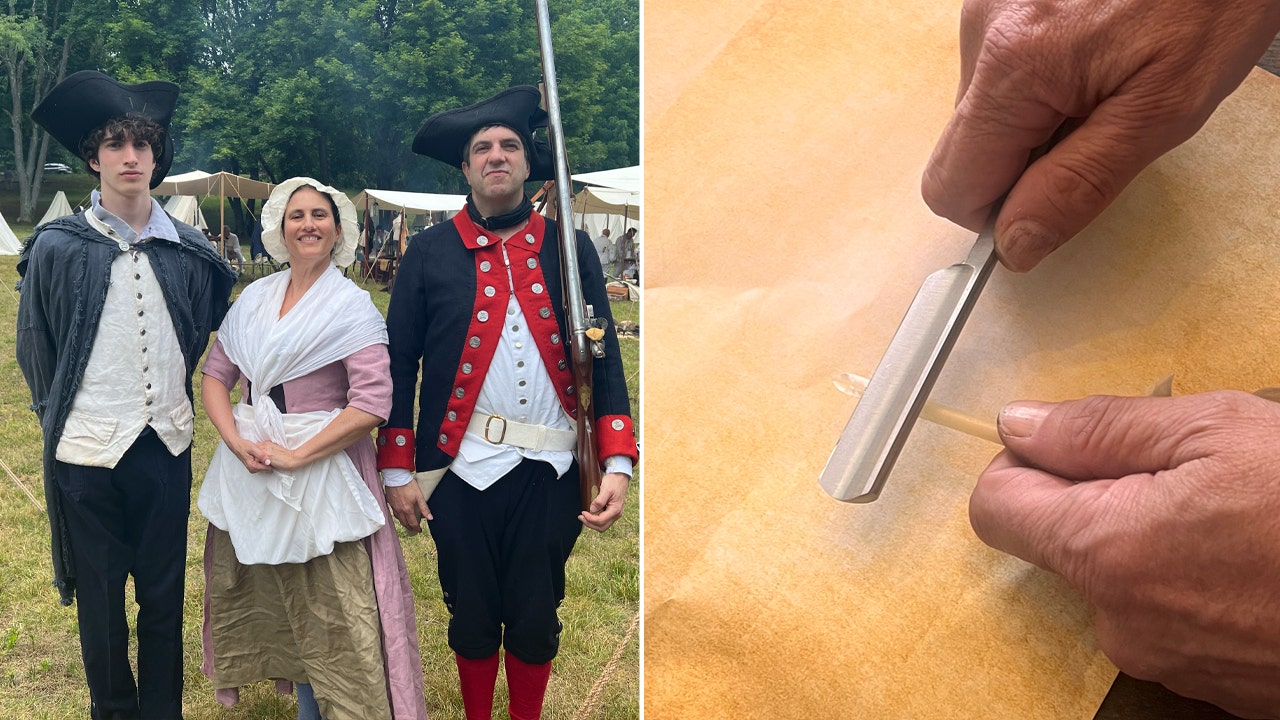
 Health4 days ago
Health4 days agoHealth, happiness and helping others are vital parts of free and responsible society, Founding Fathers taught
-
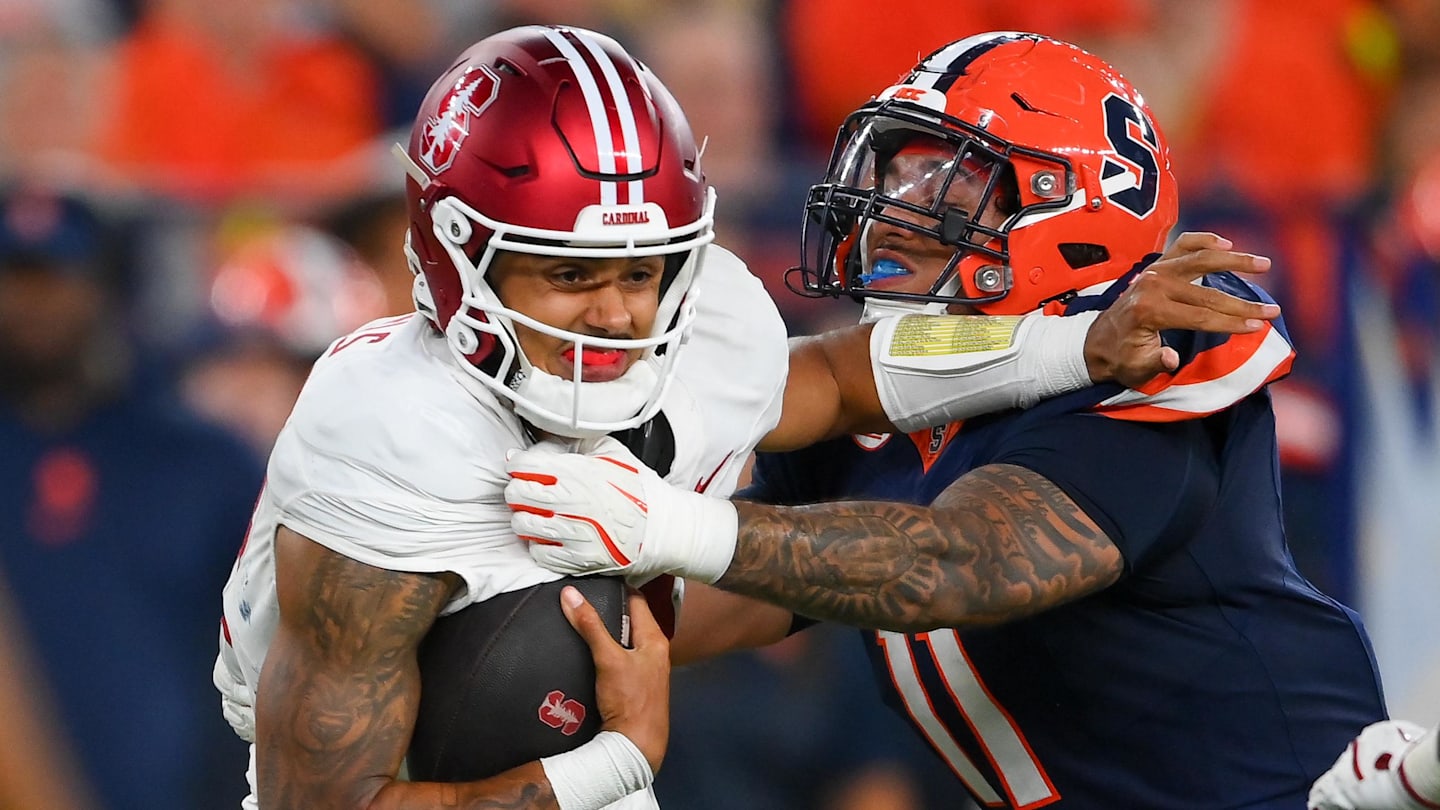
 Virginia1 week ago
Virginia1 week agoStatus for Daniels and Green still uncertain for this week against Virginia Tech; Reuben done for season
-

 Sports5 days ago
Sports5 days agoFreddie Freeman says his ankle sprain is worst injury he's ever tried to play through
-

 News4 days ago
News4 days agoLebanon says 50 medics killed in past three days as Israel extends its bombardment


